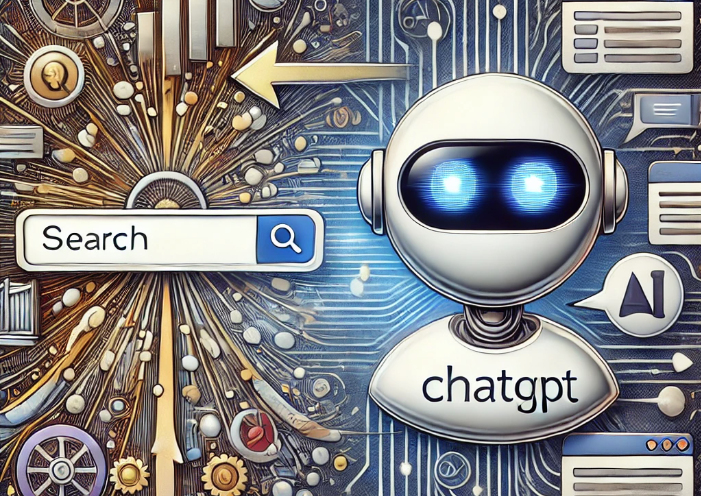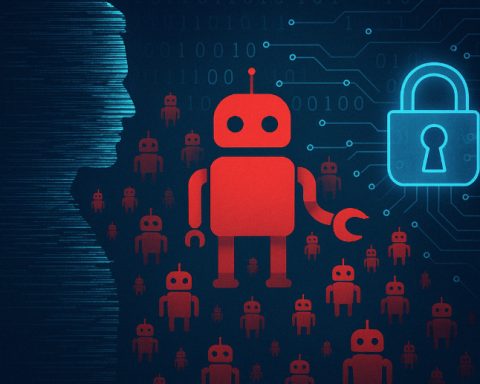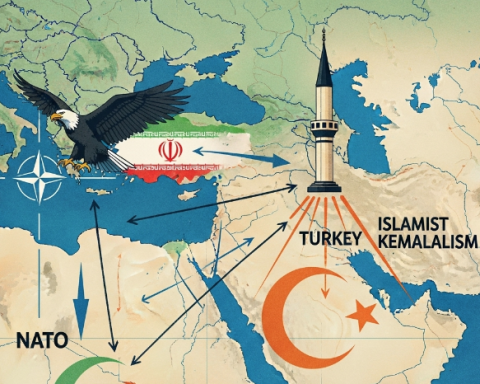For decades, search engines like Google and Bing have dominated the digital landscape, acting as gatekeepers to the vast world of online information. As a result, the SEO (Search Engine Optimization) industry was born, designed to help businesses and content creators rank higher in search engine results pages (SERPs). SEO professionals focused on keywords, backlinks, and a range of technical strategies to drive organic traffic from these search engines. But what happens if search engines, as we know them, become obsolete?
In recent years, AI technologies, especially conversational AI like OpenAI’s ChatGPT, have become increasingly capable of delivering human-like interactions and providing detailed, nuanced responses to user queries. The rise of such systems leads to the intriguing (and somewhat alarming) question: What if ChatGPT and similar AI tools effectively replace traditional search engines?
In this blog, we will explore what the future of SEO might look like in a world where AI tools like ChatGPT disrupt, or even kill, search engines. We will discuss how SEO professionals, businesses, and content creators might need to adapt to this new landscape, where conversational AI becomes the primary way people access information.
The Role of AI in Replacing Search Engines
AI Evolution: From Search Supplement to Search Engine Replacement
In its current state, ChatGPT and similar AI models are often seen as supplements to search engines, answering complex questions, assisting with tasks, or even offering creative brainstorming. However, with continued advancements in AI technology, these tools could evolve into something much more—systems that completely replace the need for traditional search engines by offering a more streamlined, interactive, and intuitive user experience.
Instead of browsing through a list of links and websites, users might prefer interacting with an AI that can deliver comprehensive, personalized answers directly. This model would provide users with a one-stop shop for knowledge, eliminating the hassle of clicking through multiple pages, parsing through information, and discerning the most relevant content themselves.
Why AI Could Win
The appeal of AI-driven systems is clear: they offer a far more human-centered experience. ChatGPT doesn’t just provide search results; it offers curated, synthesized responses. Here are some reasons why AI like ChatGPT might replace search engines:
- Efficiency: AI can process large amounts of data quickly, providing an instant, customized response without requiring users to sift through search results.
- Personalization: AI can tailor responses based on individual preferences, previous interactions, or known interests, making the experience more personal and relevant than traditional search engines.
- Interaction: AI offers a conversation, not just a search query. Users can ask follow-up questions, clarify their needs, and get more targeted responses in real time.
- Broad Application: AI can handle a variety of tasks beyond searching—writing, coding, problem-solving, etc.—making it a versatile tool that could replace multiple online functions, including search engines.
The End of Search Engines as We Know Them
Implications for Search Engines
If ChatGPT or similar AIs start to replace search engines, the current SEO ecosystem could be fundamentally disrupted. Here’s what might happen:
- Search Traffic Decline: Websites that rely on organic search traffic could see a significant drop in visitors. Since AI will be providing users with direct answers, fewer people will click on links, reducing web traffic.
- Decreased Need for SERPs: The need for rankings on search engine results pages (SERPs) might diminish or disappear. If users get all their answers from an AI, the incentive to rank on Google’s first page could become irrelevant.
- Content Aggregation by AI: Instead of linking out to individual websites, AIs might aggregate information from various sources and present it as a singular, synthesized response. This could mean content creators get less direct exposure and credit for their work.
- Shift to Conversational Queries: The nature of queries could shift from keyword-based searches to conversational, context-rich questions. This change would render many traditional SEO practices ineffective, as they are designed around optimizing for specific keywords.
The Threat to Content Monetization
Many websites rely on advertising, affiliate marketing, or direct sales from the traffic they receive through search engines. If AI bypasses these websites by answering queries directly, the monetization models of countless businesses could be disrupted. Traditional forms of revenue generation such as display ads, which depend on user visits to a site, could become far less effective.
The New World of SEO in an AI-Driven Landscape
What SEO Could Look Like
SEO as we know it may not disappear, but it will likely undergo a dramatic transformation. In a world where ChatGPT or similar AIs dominate information retrieval, here’s how SEO could evolve:
- AI Optimization (AIO): Instead of optimizing for search engines, content creators would need to optimize for AI systems. This could involve structuring content in ways that are easily digestible by AI, ensuring that it can be effectively summarized, or even creating content that is directly usable by these systems. This might include natural language optimization, better structuring of data, or even creating machine-readable content that AIs can easily parse.
- Conversational SEO: Since AI like ChatGPT uses natural language processing to interact with users, SEO strategies would need to shift toward conversational optimization. Instead of targeting keywords, content creators might focus on conversational phrases or how people ask questions naturally. Answering common queries in a clear, concise manner will be more important than ever.
- Building Brand Presence in AI Ecosystems: If AI tools become a primary mode of information retrieval, companies will need to establish their presence within these ecosystems. Just as businesses currently seek to rank high in Google, they’ll need to focus on becoming top content providers for AI platforms. This could involve creating partnerships or exclusive content deals with AI providers, much like how businesses now work with social media platforms or content syndicators.
- Direct Data Input to AIs: One possible evolution is businesses providing direct data or knowledge to AI systems, ensuring that their content is fed directly into AI databases. Similar to how companies today might provide product feeds to Google for shopping results, they might provide curated information directly to AI systems to ensure their data is accurate and prioritized.
Content Strategy in a Post-Search Engine World
- Content as Data: Instead of merely creating content for human readers, creators will need to focus on making content that is also useful for AI systems. Structured data, clean code, and well-organized information will become critical.
- Authority & Trustworthiness: Just as Google values high-authority sources, AI systems will prioritize trustworthy information. Businesses will need to invest in building their brand’s credibility and ensure that their content is factual, up-to-date, and highly regarded in their field.
- Long-Tail Content for Specific Queries: AI-driven systems will need to source data from across the web. Providing detailed, specific, and unique content on niche topics may still be a viable SEO strategy, as AIs may prefer content that addresses particular, highly specialized questions.
- Visual & Multimedia Optimization: While ChatGPT is text-based, future iterations of AI might integrate multimedia capabilities, such as video or images, more deeply into responses. Optimizing for these media types—by providing high-quality visuals, infographics, or explainer videos—could help businesses maintain relevance.
- User Experience (UX) and Interactive Content: The interactive, conversational nature of AI may push content creators toward more engaging formats. Interactive experiences, virtual assistants, or even AI-driven chatbots on a company’s website could play a role in keeping users engaged in a world where direct answers are otherwise provided by third-party AIs.
The Future of Marketing in a World Without Search Engines
Adapting Digital Marketing Strategies
While traditional SEO may decline, the broader world of digital marketing will likely shift toward new paradigms. Here’s how marketing could adapt in the absence of traditional search engines:
- AI Advertising: AI systems could develop their own advertising models, potentially offering businesses a way to insert their products or services directly into AI responses. This would represent an entirely new form of ad placement, much like the sponsored results that currently appear at the top of SERPs.
- Voice and Conversational Commerce: With AI systems potentially replacing search engines, businesses will need to invest more in voice-activated and conversational commerce experiences. Consumers could complete purchases, book appointments, or interact with brands entirely through AI, further blending marketing with technology.
- Influence in AI Responses: Just as marketers now try to influence search engine algorithms, they might begin optimizing for AI systems. Whether through strategic partnerships, paid placements, or data sharing, businesses will find ways to ensure their products, services, and information feature prominently in AI-generated answers.
- Emphasis on Brand Loyalty and Direct Traffic: As AI takes over information retrieval, brands may need to shift focus from SEO to cultivating loyal customers who seek them out directly, either through apps, social media, or direct visits to their websites.
The Role of Human Experts
While AI systems will undoubtedly become better at answering questions, providing recommendations, and solving problems, there will likely still be a role for human expertise. Thought leadership, unique perspectives, and creative storytelling could become even more valuable, as AI might struggle to generate the same level of originality and deep insight as human experts.
Businesses will likely need to invest more in human-driven content that goes beyond the purely factual and ventures into the realms of opinion, emotion, and creativity. AI might excel at answering factual questions, but human beings still bring a unique element of trust, credibility, and relatability that machines cannot easily replicate.
Conclusion
The future of SEO in a world where ChatGPT and similar AI systems replace search engines is uncertain but ripe with opportunity. While traditional SEO tactics may become obsolete, the principles of providing valuable, accessible, and relevant content will remain. The shift will be toward optimizing for AI systems—focusing on conversational SEO, ensuring content is machine-readable, and building direct relationships with AI platforms.
Digital marketers, content creators, and businesses will need to adapt their strategies to thrive in this AI-driven future. Instead of chasing search rankings, they will focus on building brand trust, creating compelling and useful content for AI ecosystems, and embracing new forms of digital advertising and user interaction.
In the end, while the nature of SEO may change, the need for businesses to be discoverable, relevant, and trusted in the digital space will never disappear. It will just evolve, as technology has always demanded.
By preparing now, businesses can ensure they are not left behind in the post-search engine era but instead lead the charge into a new frontier of digital optimization.













